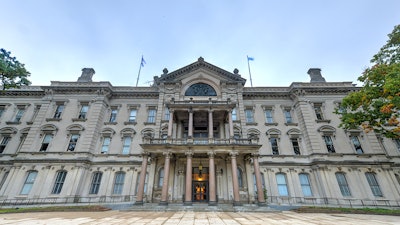
The New Jersey Cannabis Regulatory Commission (NJ-CRC) approved rules at its Jan. 17 meeting for cannabis consumption lounges, providing an operational framework for medical and adult-use operators who want to add consumption spaces to their dispensaries.
The rules will become effective once the New Jersey Office of Administrative Law signs off on them, and dispensary operators will then need municipal approval to have a consumption area in order to get final approval from the NJ-CRC.
"New Jersey’s cannabis industry is well on its way to being a billion-dollar industry, and consumption areas will likely bolster that—fostering a communal experience for those 21 and older around cannabis in a regulated and secure space," NJ-CRC Executive Director Jeff Brown said in a public statement.
The rules approved last week require cannabis consumption areas to be attached to a dispensary, and retailers are permitted only one consumption area, regardless of how many dispensaries they own.
Consumption areas must have an HVAC system that can ensure proper ventilation and prevent smoke or vapors from affecting neighbors, and regulations prohibit the sale of food, alcohol, tobacco or nicotine products inside the consumption lounge.
The regulations allow medical cannabis patients and adult-use customers to bring their own cannabis products into consumption lounges, which can make other operational decisions, such as hours of operation, fees to enter a consumption area, priority access for medical patients and allowing paid events.
Municipalities can implement their own rules, such as restricting the number of consumption areas within their jurisdictions.
"Having space to consume cannabis is not just about recreation,” NJ-CRC Chairwoman Dianna Houenou said in a public statement. “It is also about providing equitable access and offering people a safe place to consume legal cannabis products. This move holds particular significance for communities that are limited in where they can enjoy cannabis—most notably, renters who cannot consume cannabis at home, unlike homeowners who enjoy greater freedom."

























